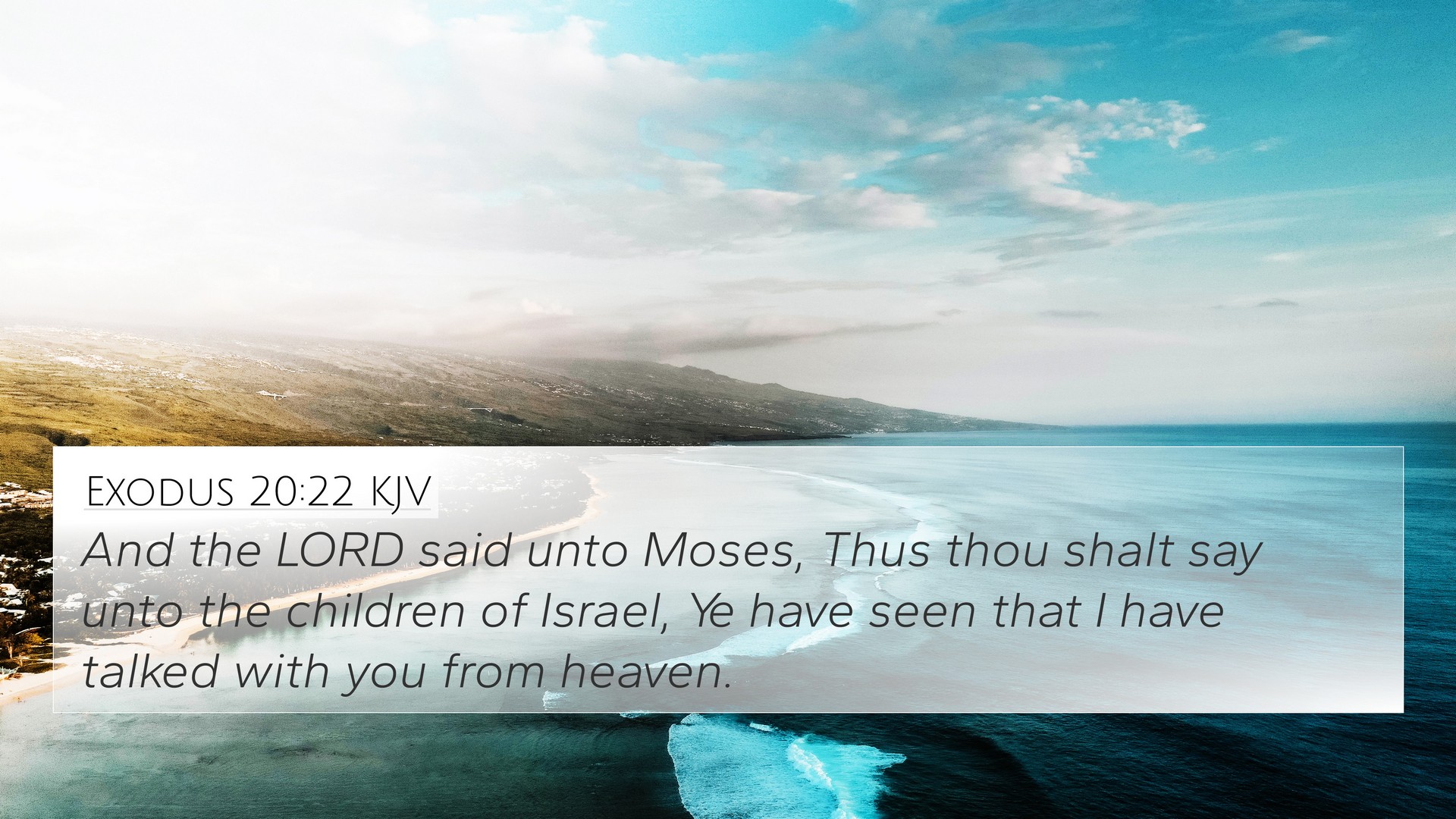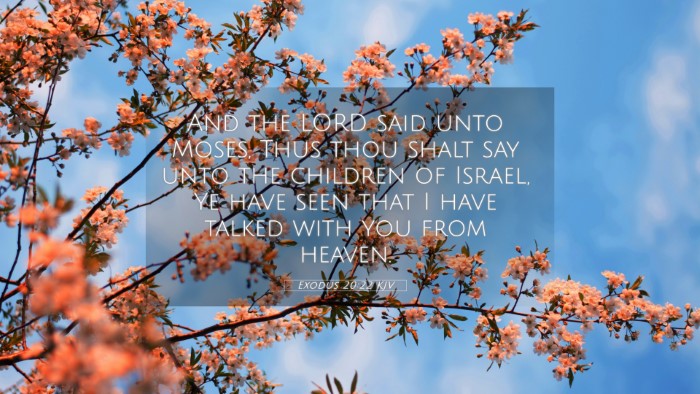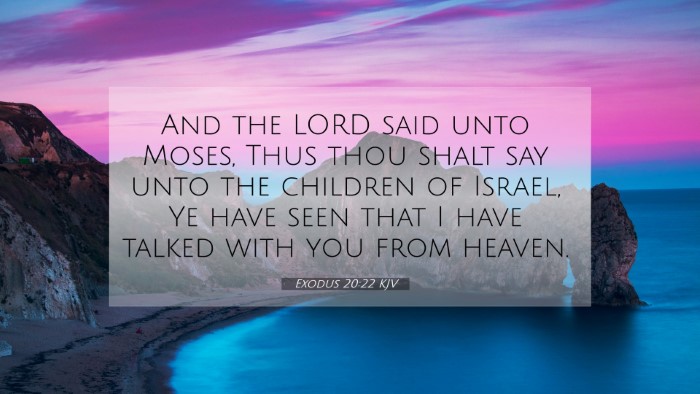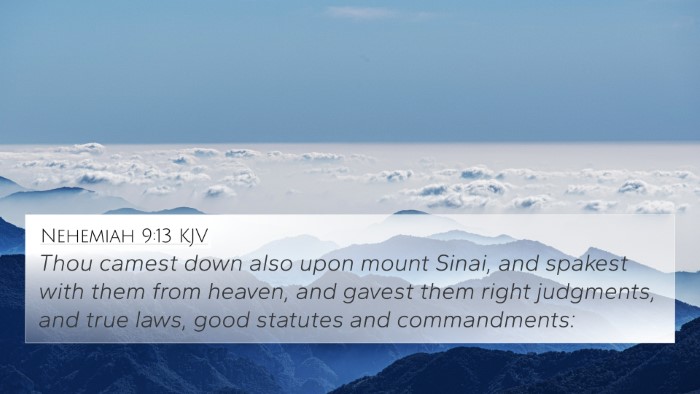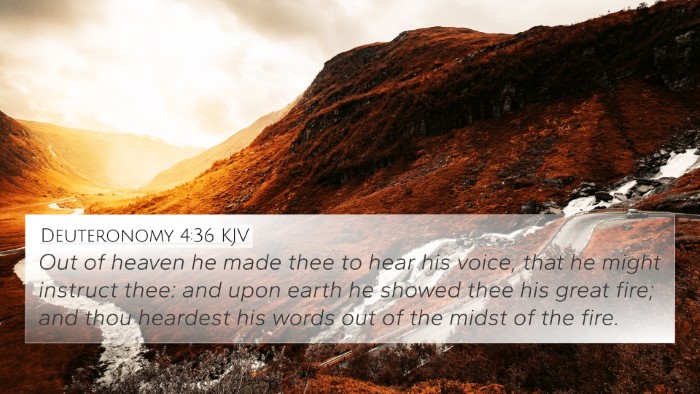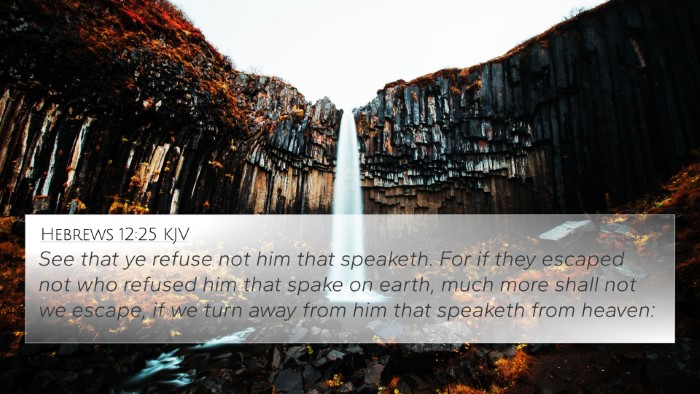Understanding Exodus 20:22
Exodus 20:22 states, "And the Lord said to Moses, thus you shall say to the children of Israel: 'You have seen that I have talked with you from heaven.'" This verse is part of the passage in which God is revealing His law to the Israelites. It underscores the direct communication between God and His people and sets the context for the laws that follow.
Summary of Interpretations
- Matthew Henry: Henry emphasizes the significance of God's direct communication with Moses as a foundational aspect of the covenant. He explains that this divine dialogue serves as a reminder of God's authority and the seriousness of obedience to His commandments.
- Albert Barnes: Barnes elaborates on the intimacy of God's communication, suggesting that it reveals His desire for a relationship with humanity. He proposes that the laws given are not arbitrary but are rooted in divine love, aimed at guiding the people in moral and ethical living.
- Adam Clarke: Clarke points out the historical context of this moment. He highlights that the Israelites had a unique privileg, as they witnessed God speaking from heaven, which served to establish their faith and obedience to His statutes.
Thematic Connections
This verse establishes the groundwork for various Bible verse cross-references, offering insights into the themes of divine communication and obedience. Notably, Exodus 20:22 serves as a key link in understanding God’s continuous engagement with His people.
Related Bible Cross-References
To deepen the understanding of Exodus 20:22, we can explore several related Bible verses that relate to each other:
- Exodus 19:9: God tells Moses that He will come to him in a thick cloud, so the people may hear Him speaking.
- Hebrews 12:25: It warns against refusing to hear Him who speaks from heaven, echoing the call to heed God’s words.
- Isaiah 30:21: Speaks to the guidance God provides, indicating that His voice leads His people to walk in the right path.
- John 10:27: Jesus states, "My sheep hear my voice, and I know them, and they follow me," illustrating the continuous relationship between God and believers.
- Romans 10:17: Highlights that faith comes from hearing, thus connecting the theme of divine communication with belief.
- 1 Thessalonians 2:13: This verse mentions receiving the word of God not as a human word, but as it truly is, emphasizing its divine origin.
- James 1:22: Encourages being doers of the word, not hearers only, linking back to the call for obedience found in God’s commandments.
Analyzing the Context
In the broader context of Exodus, the verses leading up to and following Exodus 20:22 create a narrative that illustrates God's covenant with Israel. It serves as a reminder of the commitment God requires of His people, while also highlighting His grace in communicating His will.
Comparative Themes
There is a rich tapestry of thematic Bible verse connections that arise upon exploring how God communicates across both Testaments:
- Direct Revelation: God's direct conversations with prophets serve as a motif throughout scripture (e.g., Jeremiah 1:7-9).
- Divine Authority: Verses like Matthew 28:18 where Jesus declares His authority resonate with God's spoken commandments in Exodus.
- Call to Obedience: The command in both testaments to obey God's word illustrates continuity in divine expectations.
Conclusion
Exodus 20:22 stands as a pivotal moment in scripture, encapsulating God’s desire for an intimate relationship with His followers through direct communication. To fully grasp its implications, one must consider the cross-referencing Biblical texts and the overarching covenant themes interwoven throughout the Bible. By engaging with these verses through a lens of comparative Bible verse analysis, one can uncover deeper insights into God's redemptive plan and His call to holiness.
